Tatterson’s new heart provides hope for healthy future
Having three major heart surgeries before age 3, Alex Tatterson, senior, can practically face any challenge thrown in his way. Tatterson had a rare heart defect present at birth called Hypoplastic Left Heart Syndrome, where the left side of the heart is critically underdeveloped. Such a condition means the left side of the heart cannot effectively pump blood to the body, so the right side of the heart must pump blood.
At just three days old Tatterson had a stage one Norwood procedure for Hypoplastic Left Heart Syndrome. Six months later he had the Glenn procedure, which is part of the surgical treatment path for Hypoplastic Left Heart Syndrome.
Alex, the first child to the Tatterson family, created an unique experience of faith that everything would turn out alright because his parents did not know any different. Mrs. Tatterson stated, “He was our first kid so it was all that we knew. We were lucky to be living near Children’s Hospital in Boston.”
About two years later, Tatterson had the Fontan procedure which is a surgical procedure used in children with complex congenital heart defects. Fifteen years later he got a ventricular assist device (VAD), which is a mechanical pump that is used to support heart function and blood flow in people who have weakened hearts.
When Tatterson was on the VAD, someone who knew how to change out the controller had to be with him at all times, such as his mom, dad or Matt Kalkhoff, senior, one of his closest friends.
At age 17, Tatterson had an ulcer surgery. This surgery is rare, but it is needed sometimes to treat ulcers that do not heal.
In October of 2015, Tatterson shared a pizza party with his friends courtesy of the Make A Wish Foundation. He also received a very high-end computer/gaming/graphic design system.
Tatterson and Kalkhoff have been friends since Alex moved to Wisconsin in third grade. “Last Spring Break he went on vacation to Florida and started to feel really sick. They rushed him to the hospital and then promptly flew him to Children’s in Milwaukee,“ Kalkhoff said.
Once Alex got to the hospital he underwent a surgery to insert a small pump that took the load off of his severely weakened heart. After months in the hospital, he was sent home. He did not have any major complications until January of 2016, when he had a stroke shortly after arriving at school.
“As soon as I got to Multimedia I knew something was seriously wrong. Alex was hunched over and having trouble speaking. I immediately called his doctor who informed me to rush him to the hospital. Later on in the day I received the news that he had a stroke,” Kalkhoff said.
“I dropped Alex off at school the day after [Martin Luther King, Jr.] Day. He was fine when I dropped him off at school. School called me about five minutes later saying he was not well. He ended up in an ambulance headed for Children’s,” Mrs. Tatterson said.
“It was strange. I had never had a stroke before but I could tell I was having one. One side of your body just locks up completely,” Tatterson said.
A stroke occurs when the blood supply going to the brain is interrupted or reduced. This deprives the brain of oxygen and nutrients, which can cause brain cells to die. A stroke may be caused by a blocked artery or the leaking or bursting of a blood vessel. Alex’s stroke was caused by a blood clot.
On the afternoon of Feb. 21, Alex got a four-hour pass from the hospital. “We all went to Chancery for lunch, then took him video game shopping,” Mrs. Tatterson said.
The family waited 10 long months for a new heart, from April 2015 to January 2016, and finally on Jan. 24, a week after his stroke, a new heart was available for him — a big relief for Tatterson and his family and friends.
“I visited him a few days [after the stroke] and he was very out of it. The morning after I visited him I learned that they had found a nearly perfect heart for Alex. After a 15 hour surgery and about a week of recovery, Alex was finally conscious,” Kalkhoff added.
The next day, Jan. 25, 2016, Alex underwent his heart transplant surgery. Between 1 p.m. and 5 a.m., the doctors worked under immense pressure, replacing Alex’s old heart with a perfectly functioning one.
“The worry really started to set in when he was wheeled into surgery,” Mrs. Tatterson said.
Transplant surgery is dramatic, complex and time-sensitive. The clock starts ticking as soon as an organ is removed from the still living body, placed carefully in a special cold container and then transported at speed to the seriously ill patient waiting for the replacement organ.
After 15 hours of doctors working every ticking moment on the transplant of Alex’s new heart, the procedure was finally complete.
“I always thought it would be alright since we’d come so far,” Mrs. Tatterson said.
Pushing through all the challenges that Tatterson experienced daily would be hard for anyone to face alone, but with all the love and support from his family, especially all the support from his friends at Homestead, he was most certainly not alone.
Also, the love he gets from his little brother, Thomas, third grader at Oriole Lane Elementary, really helped Alex keep a smile on his face. “I love my brother. He was a little upset that I had to have surgery, but he was very grateful that I was okay,” Tatterson said.
On Feb. 26, Tatterson was finally allowed to leave the hospital after being cooped up since Jan. 17. With this newfound freedom, he thought that going to Ginza Sushi restaurant with his dad was the best choice.
“We have been grateful all of these years for the tremendous level of skill and caring that he has received from the many doctors, nurses and specialists that have led to the point now that he can have a very normal and healthy life,” Mr. Tatterson said.
Although being served food in bed, while watching TV in the hospital room sounds rather convenient, nothing beats a home cooked meal from Mom. “The food at the hospital isn’t terrible but it was very nice to have a family meal,” Tatterson said.
“I’m sure he’s looking forward to a little more independence when he gets home,” Mrs. Tatterson said.
“I’m most excited to sleep in my own bed, and having friends visit,” Tatterson added.
Getting sick after a major surgery is definitely not an option, so in that case Tatterson has to wear a face mask whenever he is outside of his house. “I need to stay away from large crowds for now because I’m more likely to get sick. I wear a mask whenever I’m out of the house,” he said.
In May, Alex will be able to leave his house without the accompaniment of the facemask and will be able to start living the life his parents have dreamed of him having since he took his first breath.
“Alex and our entire family have kept a very positive and optimistic attitude through all of these challenges. This has allowed us to maintain a ‘normal’ life and to keep dreaming about the future,” Mr. Tatterson said.
Alex is going to start therapy at either the Children’s Hospital or at the adult facility at Columbia St Mary’s to ensure his heart remains healthy.
Through all of his struggles with his health, Alex has been able to keep up with his school work online, and has been accepted to the University of Wisconsin-Milwaukee for the fall of 2016. He will be studying to get a bachelor’s degree in either film or cinematography; he is currently making a video for teens and families at the Children’s Hospital. Thanks to a heart transplant, as well as the unending support of family and friends, Alex can look forward to a happy and healthy future.

Elle Liniewski is a freshmen who spends most of her time with friends and family. She also is on the varsity swim team during the winter and will be on...

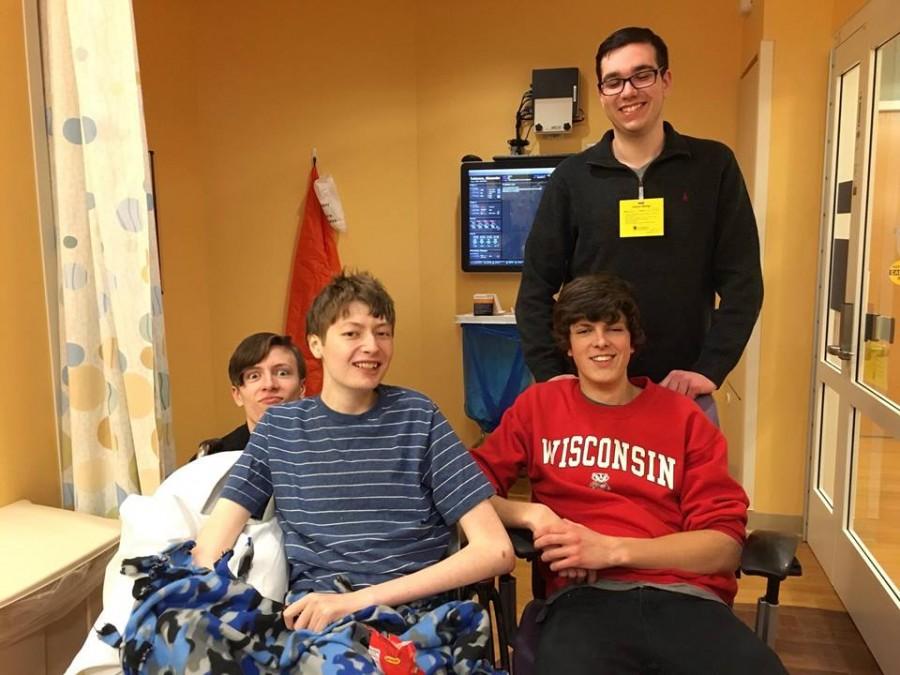
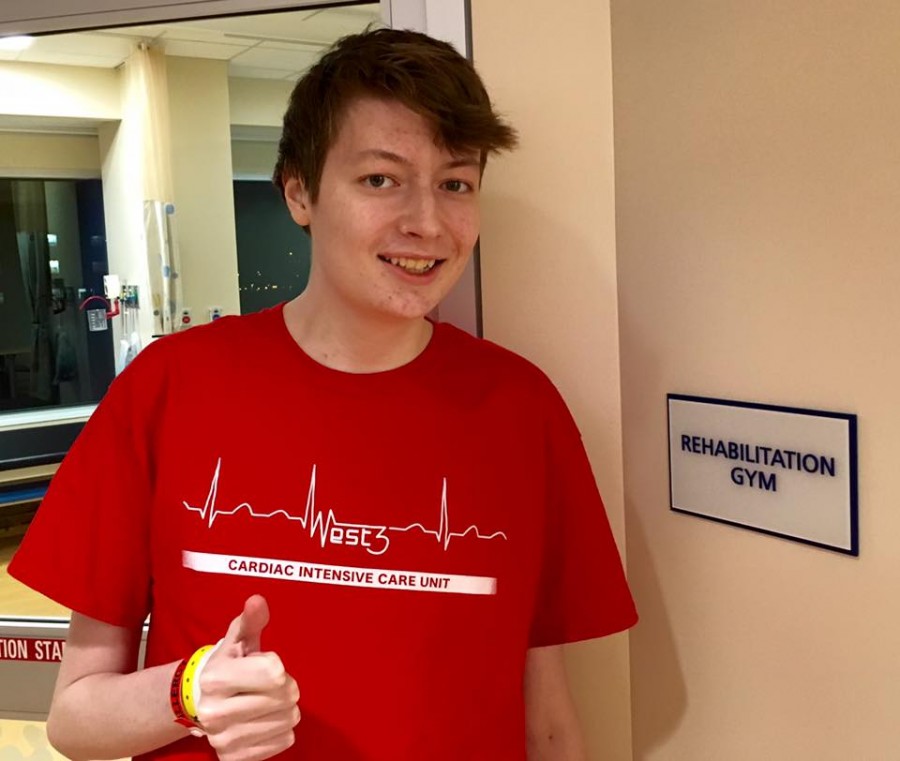
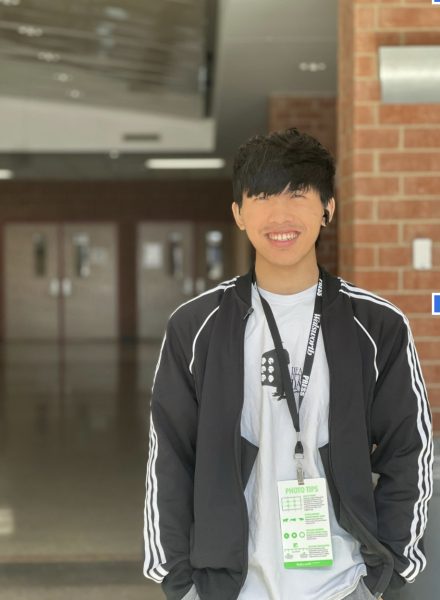
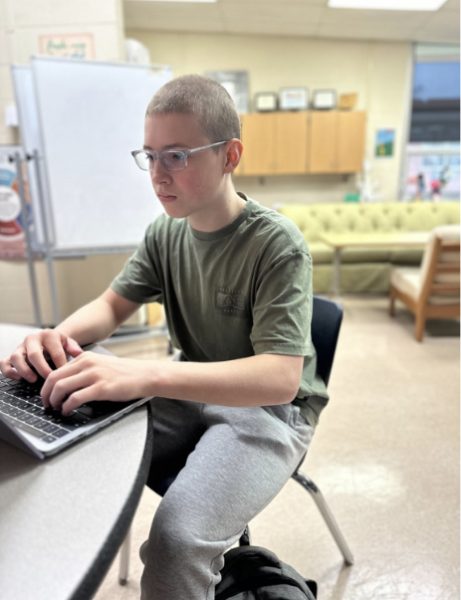
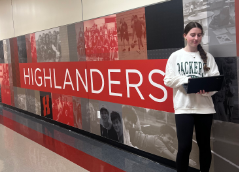
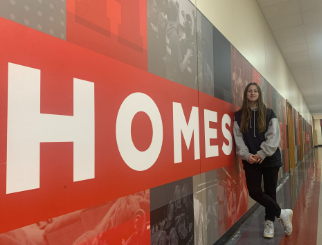
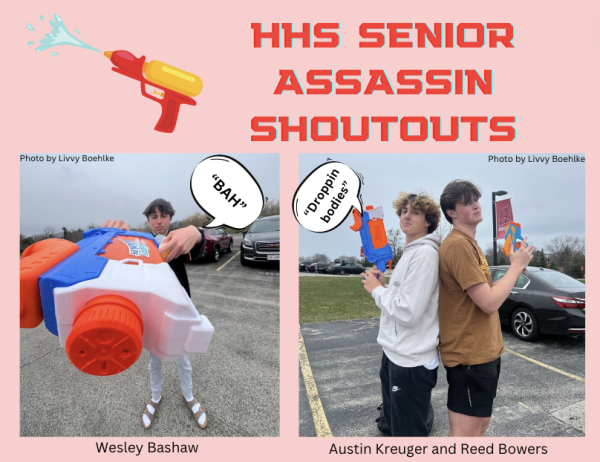
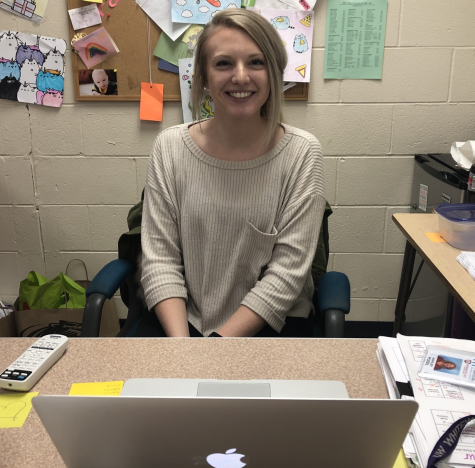
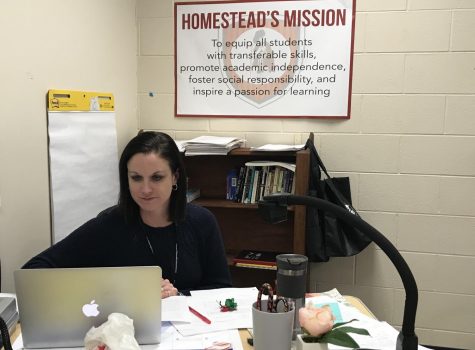
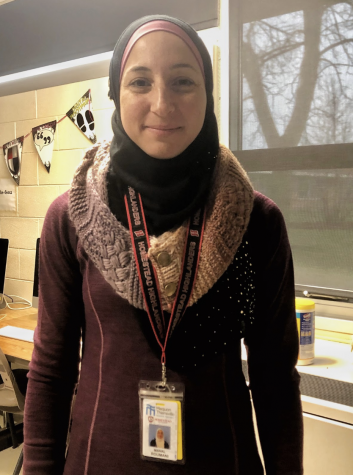

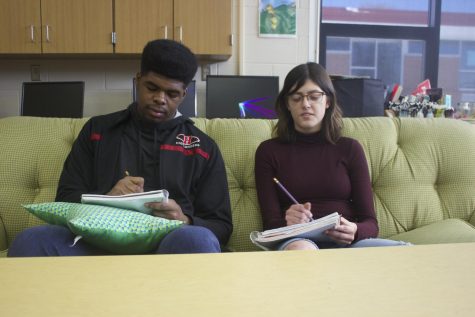
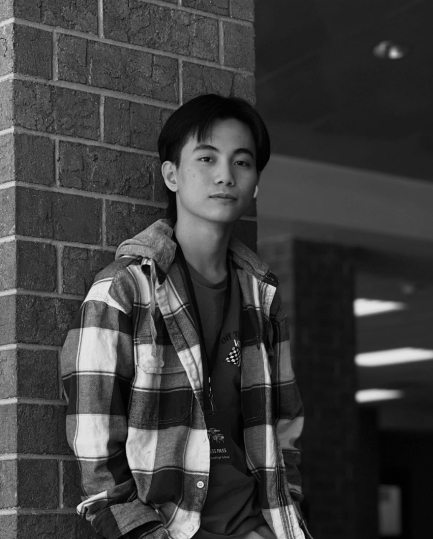
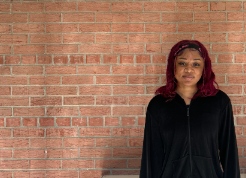
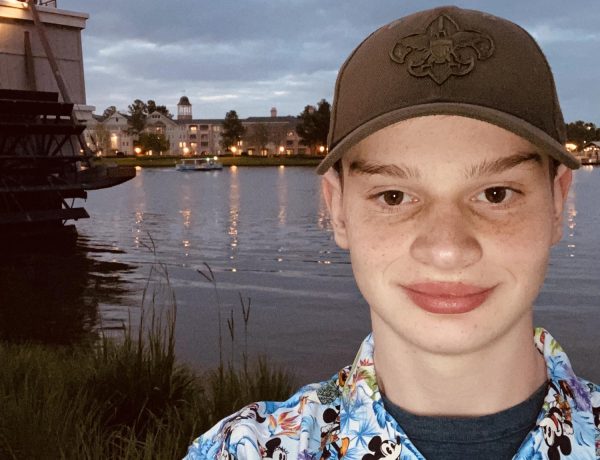
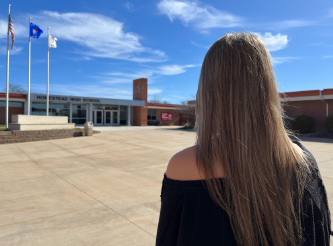
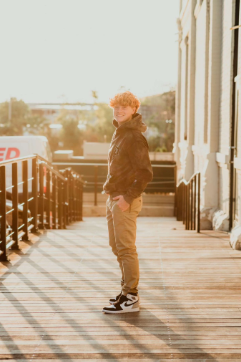
Barbara Klocko • Mar 4, 2016 at 8:10 am
Bob, Kathy, Alex, and Thomas your family has helped us learn about hope, faith, and patience. Each of you has taught us about strength and optimism in the face of numerous obstacles. Continued prayers for your family.
Aunt Jennifer • Mar 3, 2016 at 1:43 pm
Alex, We are so grateful that you now will be able to live your life the way it should be lived. You now have a new friend that was very generous to be on the organ donor list. That person’s family must be very proud that they raised a very loving, caring, generous person. Whoever that person was, we pray for them, that they are rewarded in their new life, just as you are rewarded with their generosity in this life. There is nothing that you cannot now do, go for it Alex and live your life with a passion. Love You.
Jennifer • Mar 3, 2016 at 1:53 pm
Sorry Alex, meant to say from Cousin Jennifer. LOL
Dawn Bantz • Mar 3, 2016 at 5:51 am
What an AMAZING young man! I’m so very happy for you all! CongratuIations!!!!!
?????
A new heart❤️, a new life & getting into UWM. Stay strong?? Alex there isn’t anything that you can’t achieve!??
Carol Gruber • Mar 2, 2016 at 11:22 am
What a wonderfully written article. We are all very grateful to Alex’s family and friends for all of their support and prayers through this very difficult time. Alex is a tremendous young man with a bright future.
Kathy Tatterson • Mar 2, 2016 at 11:00 am
Thank you for sharing Alex’s story. I can’t believe you included Alex’s heart photos! ?❤️
Elle Liniewski • Mar 2, 2016 at 1:15 pm
Of course! I was happy too! 🙂 and yes I thought it was worth putting in!
Barbara Klocko • Mar 4, 2016 at 8:11 am
Ellen, great article about the Tatterson family and Alex’s journey.
Elle Liniewski • Mar 4, 2016 at 9:41 am
thank you! 🙂